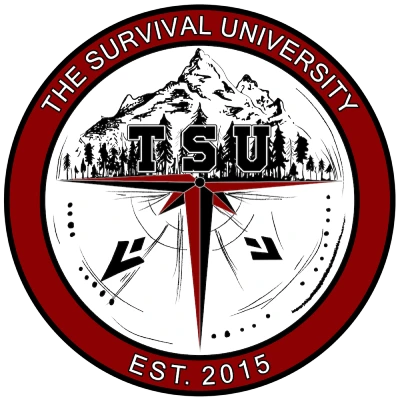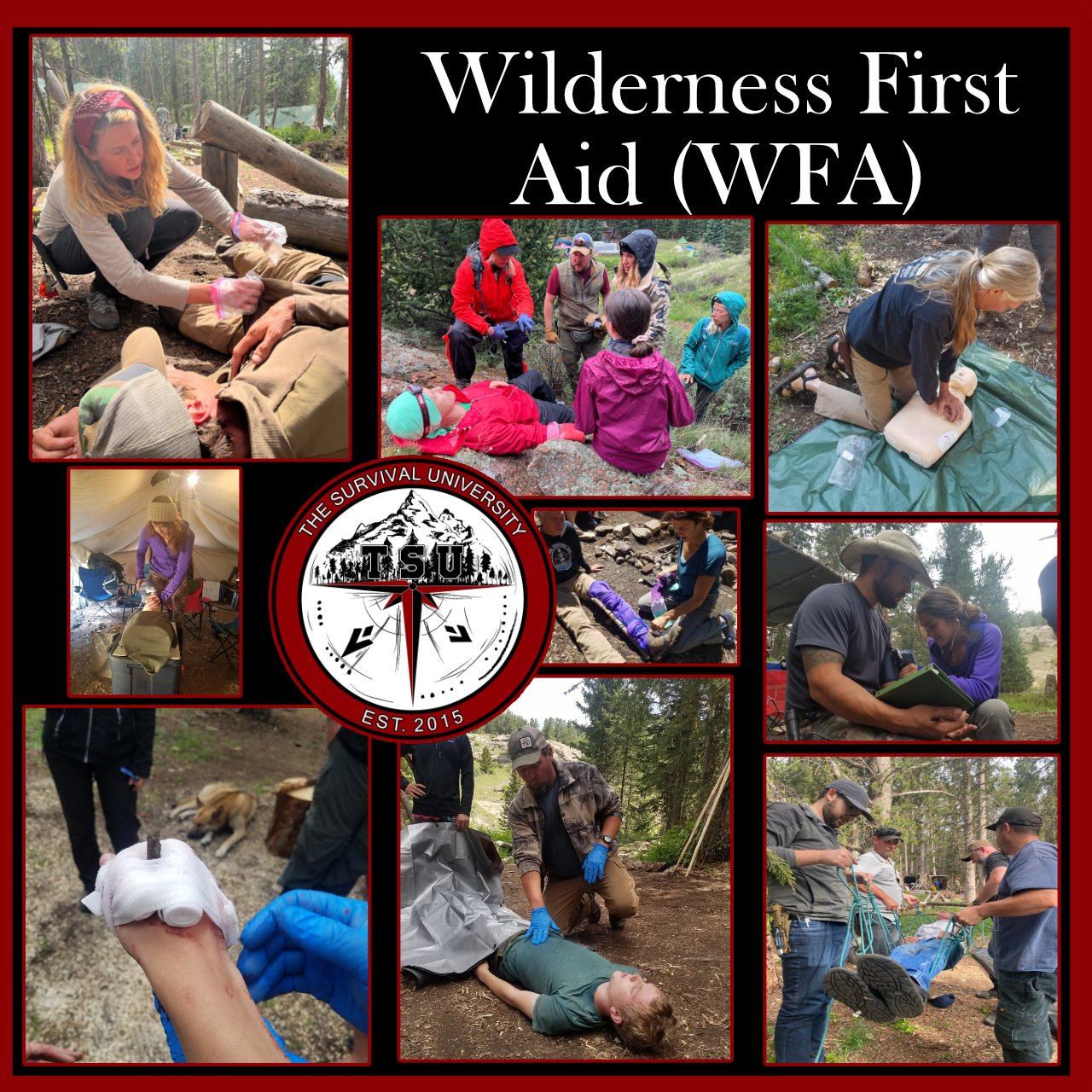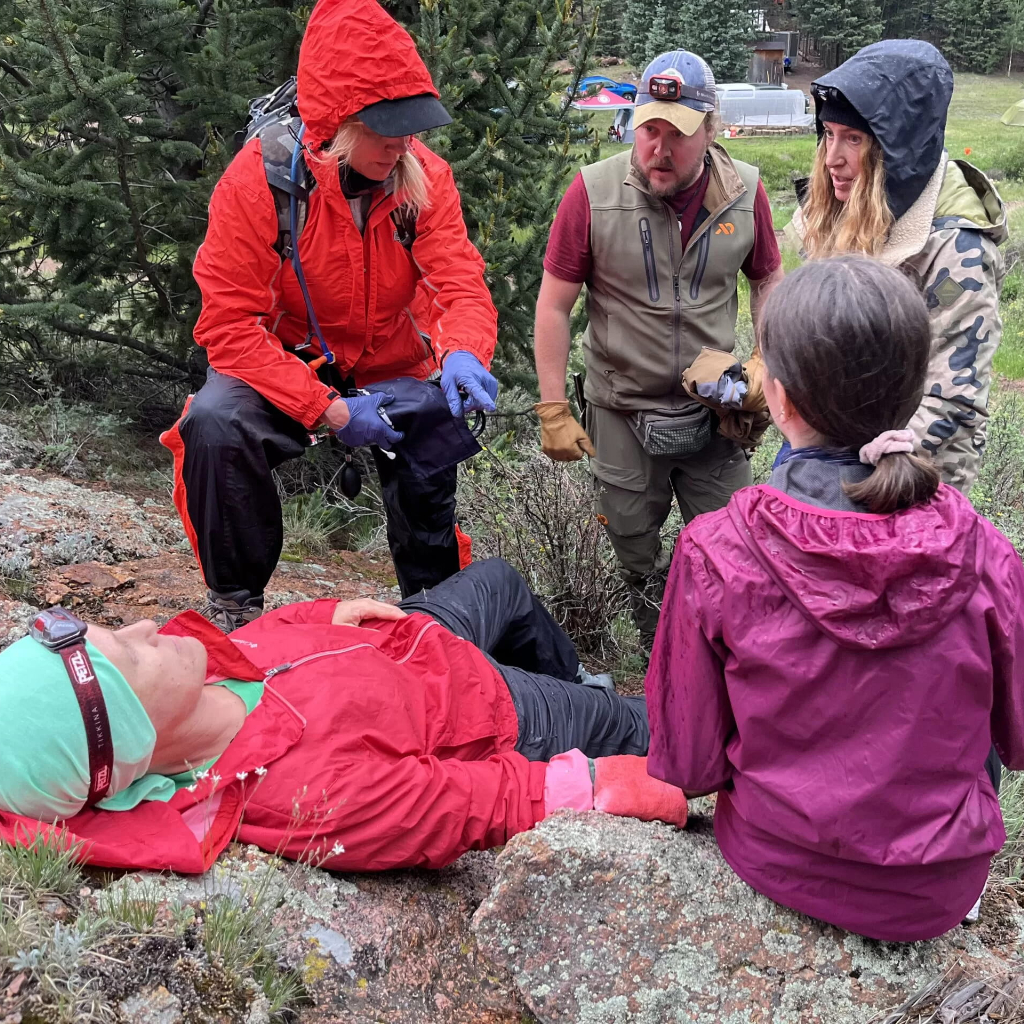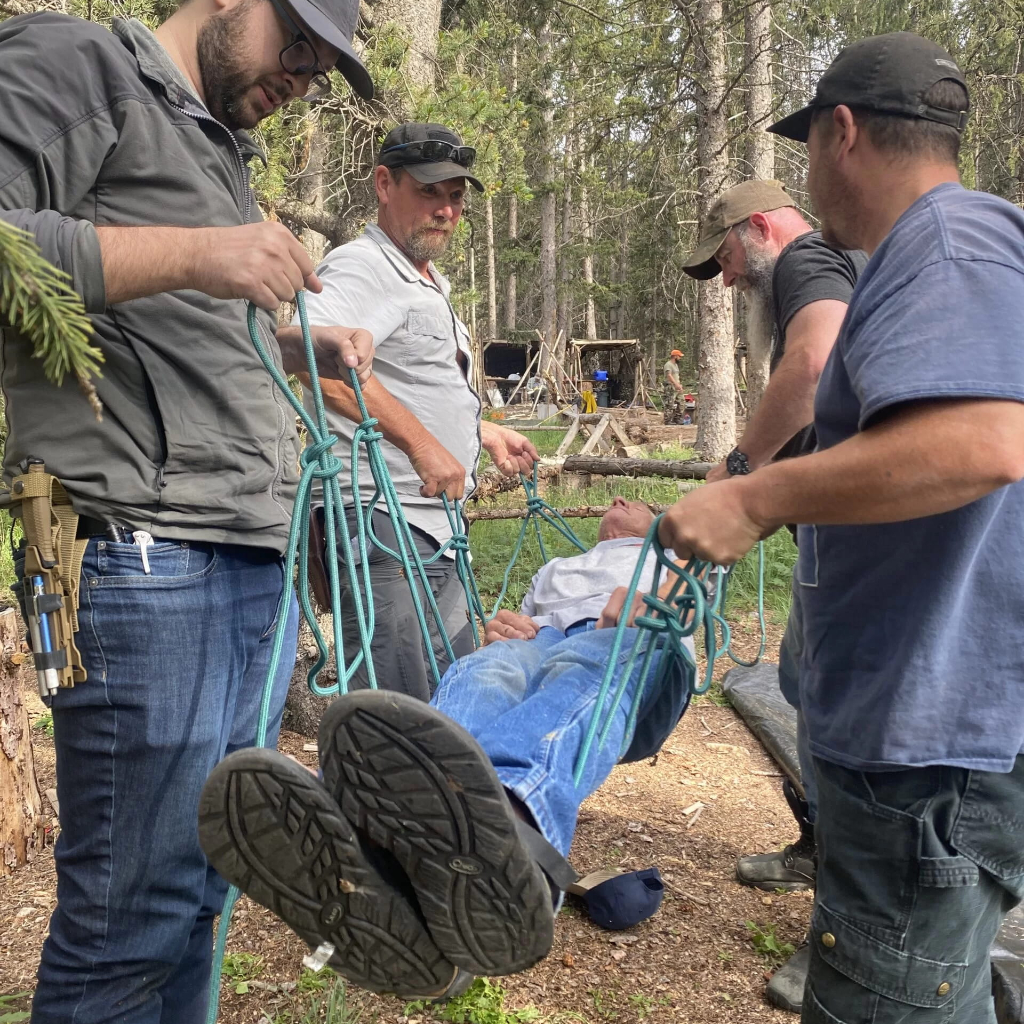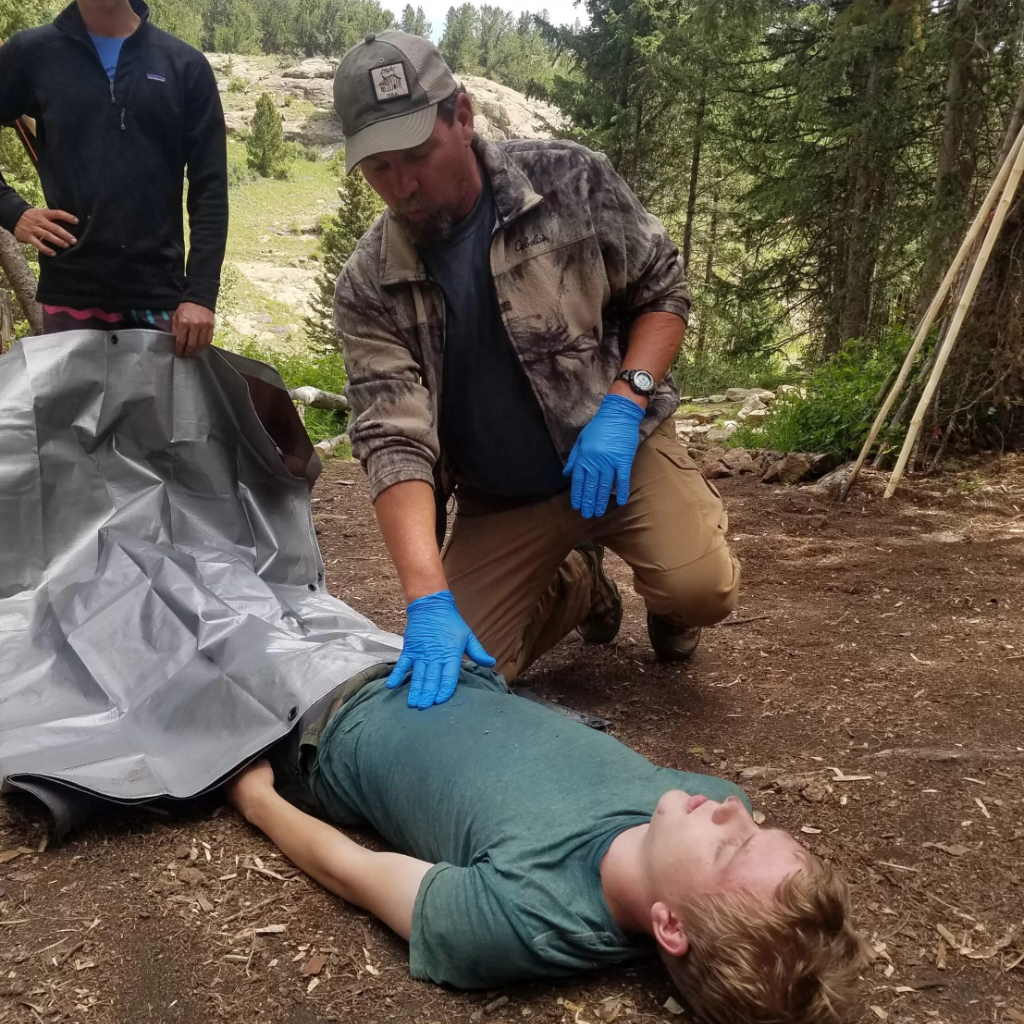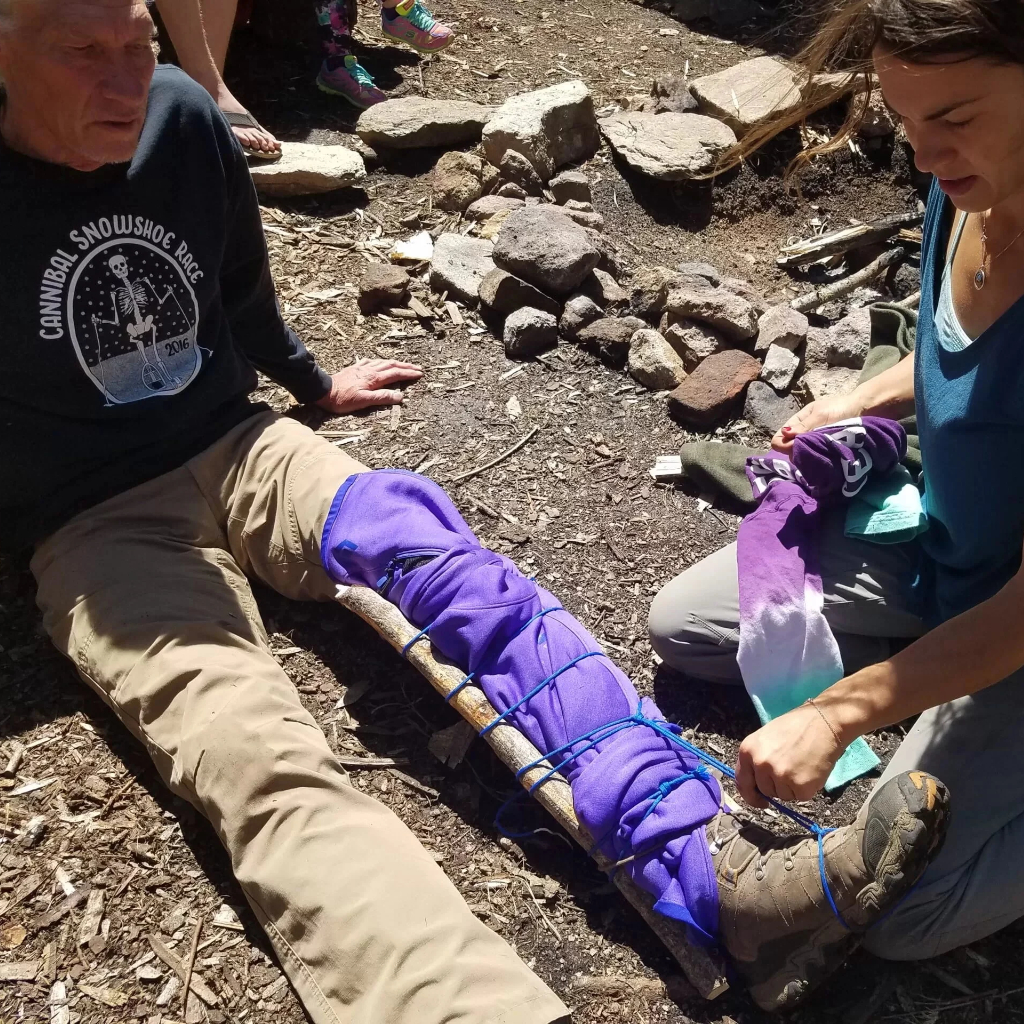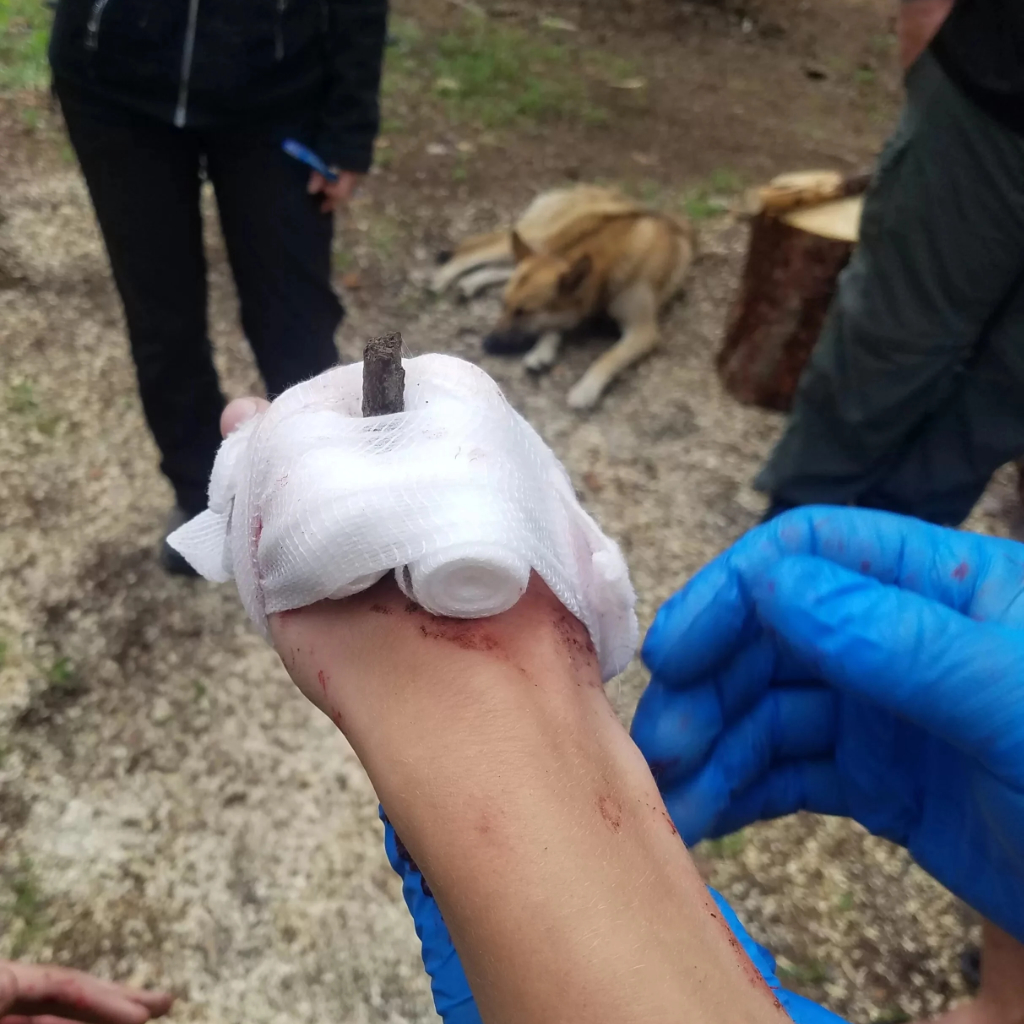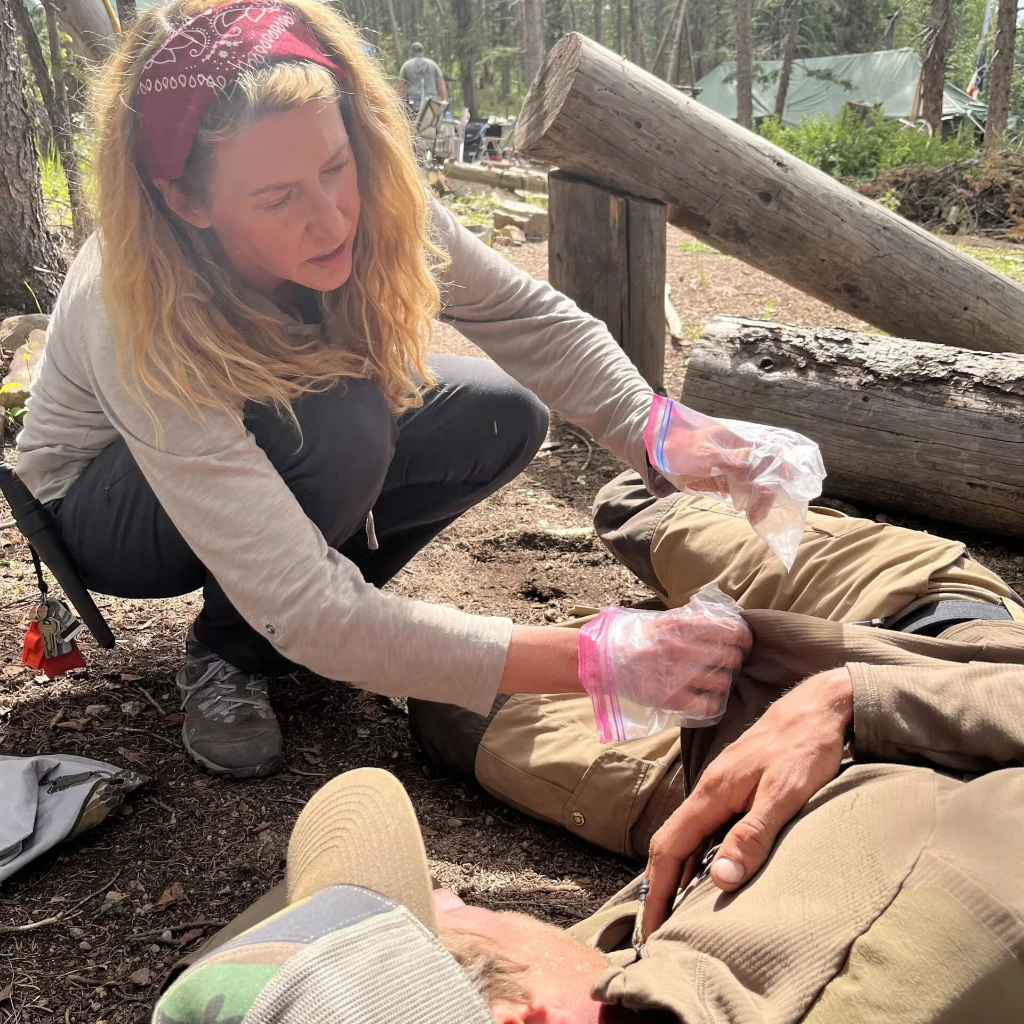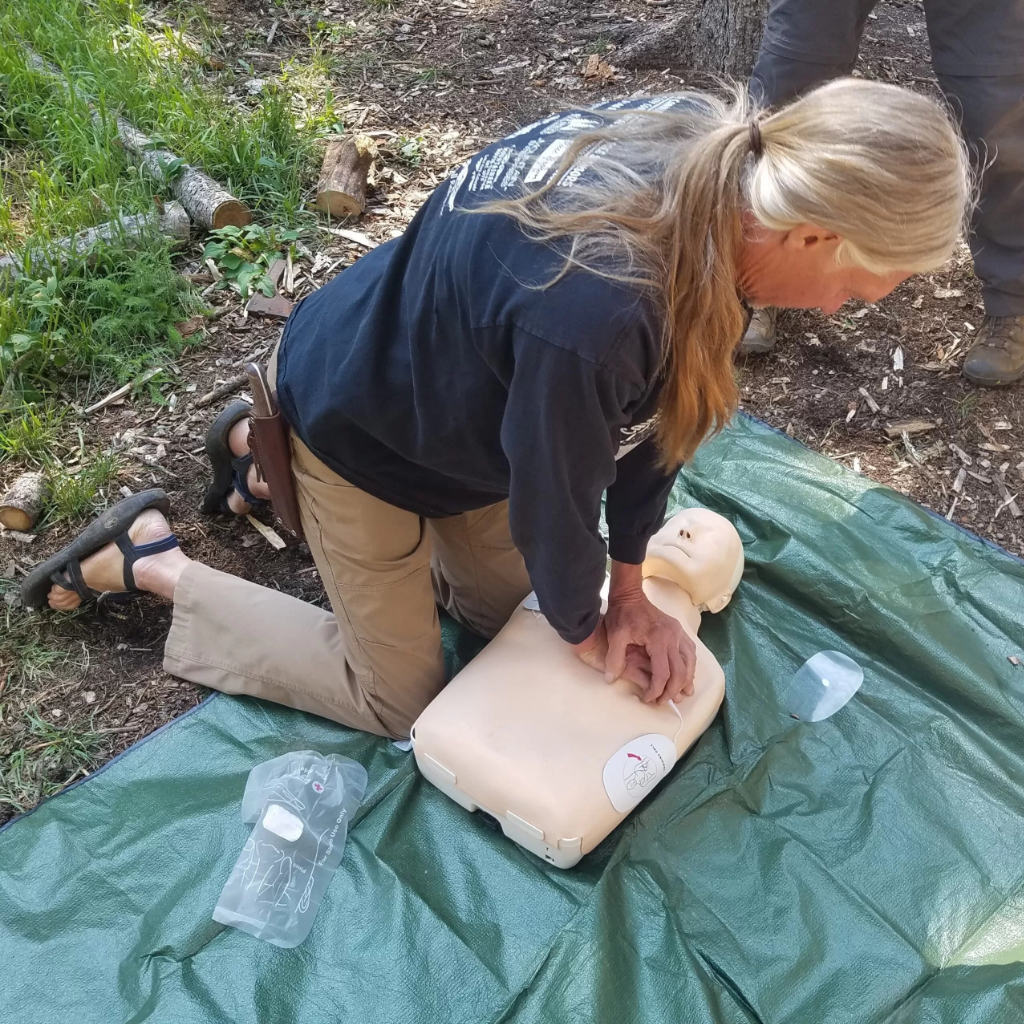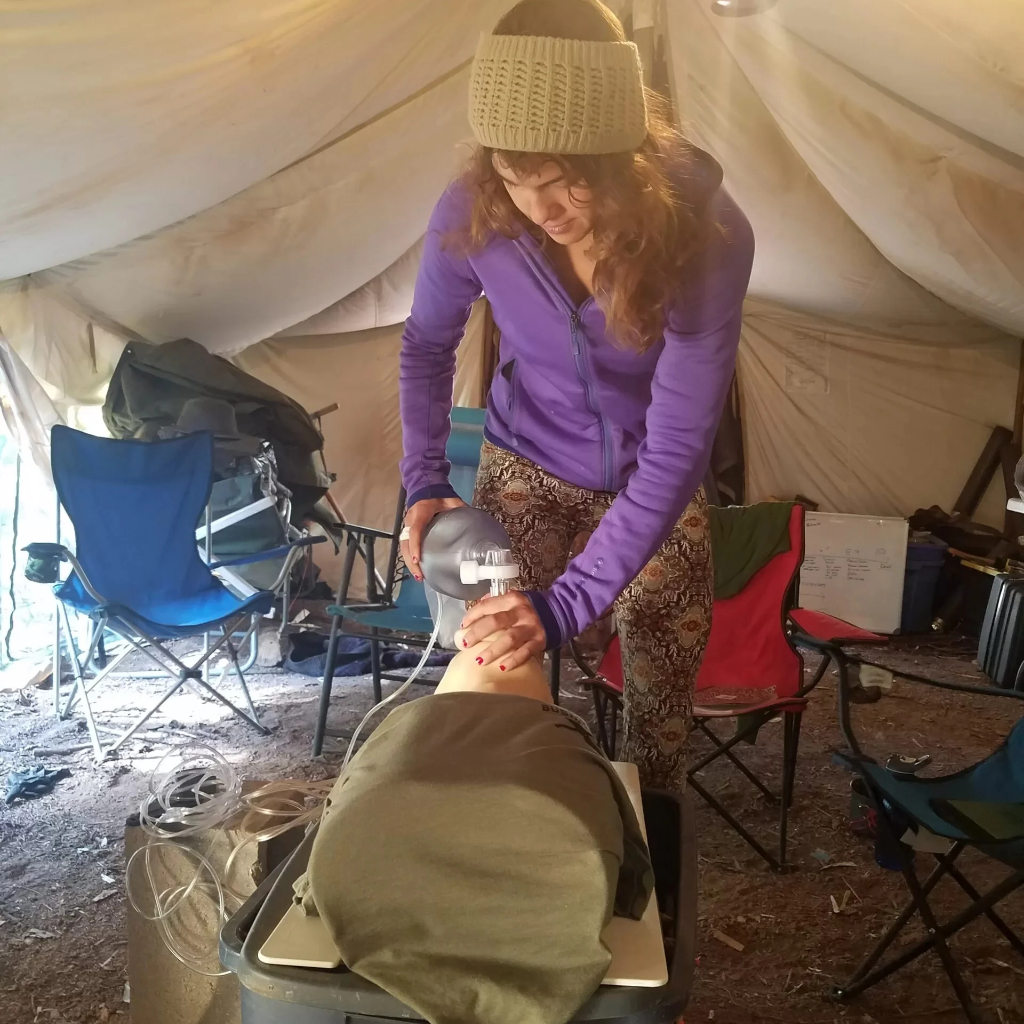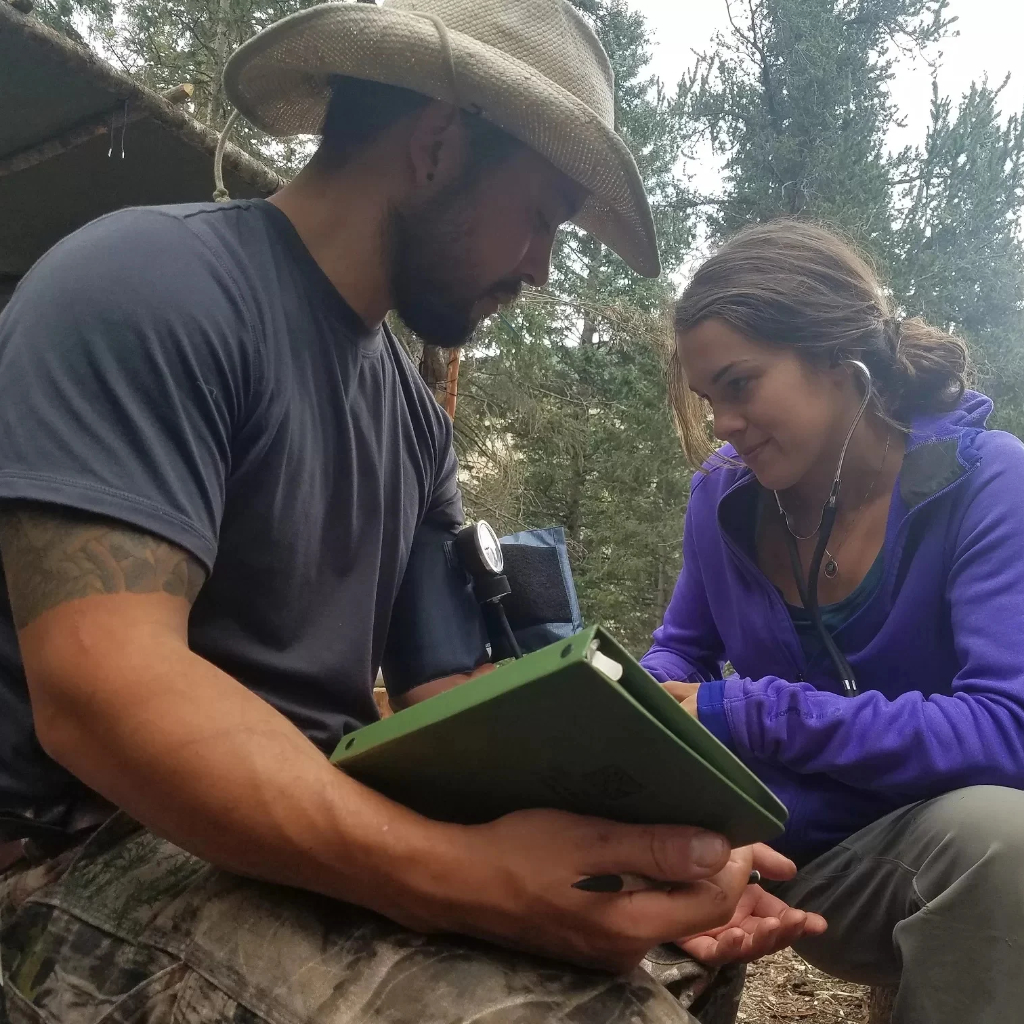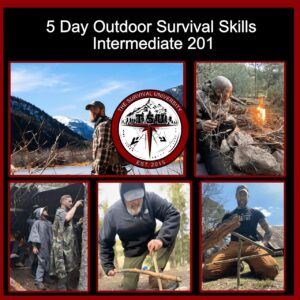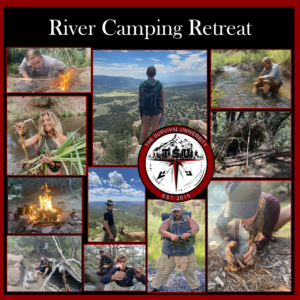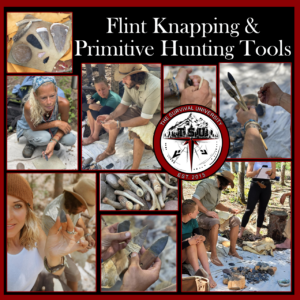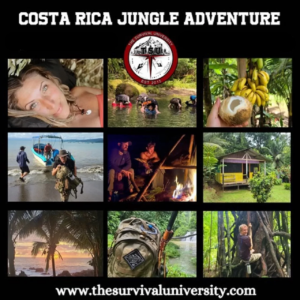Cart
Wilderness First Aid (WFA)
Price range: $295.00 through $350.00
This class is taught by Offgrid Medic LLC, one of the leading WFA Instruction Schools in the Nation.
Off Grid Medic programs are recognized by many professional organizations, including the American Safety and Health Institute (ASHI); the Boy Scouts of America (BSA); the Georgia Department of Public Health Office of EMS and Trauma; the Georgia Peace Officers Standards and Training (P.O.S.T.) Council and the National Registry of Emergency Medical Technicians (NREMT).
Description
Wilderness First Aid (WFA) Course
Hands-On Wilderness Medicine Training for Outdoor Emergencies
If you spend time in the backcountry, you need more than a basic first aid kit—you need real skills. The Wilderness First Aid (WFA) course at The Survival University offers hands-on medical training for remote environments, taught in the rugged mountains of Colorado at 10,000 feet elevation.
This intensive 18-hour outdoor medical training course is ideal for hikers, backpackers, hunters, wilderness guides, survivalists, and anyone who ventures off-grid. Whether you’re responding to injuries, illness, or unexpected emergencies far from help, this class gives you the confidence and training to act quickly and effectively.
You’ll gain practical experience through immersive scenarios, including night training and realistic simulations in the field. Taught by certified instructors with real-world experience in wilderness medicine, this class is perfect for those who want more than a classroom lecture—it’s about learning to think, act, and respond under pressure in the wild.
If you’re looking for more advanced wilderness medical training, check out our Wilderness First Responder course. There are no prerequisites for either course.
What You’ll Learn in Wilderness First Aid
-
Wilderness patient assessment and medical decision-making
-
Managing soft tissue wounds, bleeding, and shock
-
Treating musculoskeletal injuries (sprains, fractures, dislocations)
-
Head, neck, and spinal injury care in remote locations
-
Burns, bites, stings, and venomous animal responses
-
Environmental emergencies: heat, cold, altitude, and exposure
-
Improvised evacuation techniques and litter carries
-
Building and organizing a functional wilderness medical kit
-
Wilderness medicine mindset and planning for backcountry safety
-
Basic anatomy and physiology for field care
Day and night practical exercises are a critical learning tool for this material. This program is physical in nature, and a reasonable level of fitness is expected of all participants. Certification is valid for two years. Adult, child, and infant CPR and AED use is included as part of this program.
Optional CPR & AED Certification
For an additional fee, you may stay after the course to complete standalone CPR certification, covering adult, child, and infant CPR, the proper use of an Automated External Defibrillator (AED), and how to treat choking incidents.
Why Take Wilderness Medical Training at The Survival University?
We train outdoors, rain or shine. Our high-elevation mountain classroom simulates real backcountry challenges—not a padded indoor setting. Whether you’re preparing for long treks, guiding trips, or simply want to protect your friends and family, this course gives you field-tested skills in wilderness emergency medicine.
Ready to take your preparedness to the next level? Register today and join us for this immersive wilderness medical training experience in the heart of Colorado.
Additional information
| CPR Certification | With CPR Certification, Without CPR Certification |
|---|
ACCOMMODATIONS
If students do not wish to camp with us, the town of Cripple Creek is a short 15 minute drive from our location and Woodland Park is 30 minutes away. Students will be responsible for making their own reservations with nearby hotels. We do have a central community campfire location with a few designated campsites but mostly offer dispersed camping. Students will be able to drive their car within 100 feet of the main camp and will not have to hike gear in for long distances.
- Sanitation/Hygiene: A portable restroom and potable water will be provided at main camp.
FOOD AND WATER REQUIRED
Water will be provided but students will need to bring their own food. We recommend quick field expedient meals such as freeze dried hiking meals or MRE’s. They can quickly be made at our primitive camps and won’t slow down the learning process. However, students may bring any food that they wish to cook over the campfire or on their own personal camp stove.
Food can be purchased locally at nearby facilities. Walmart and several local eateries are within a reasonable driving distance.
Due to the different levels of prior experience and knowledge among students in each class, individual outcomes may vary. Weather conditions can also be a factor in changing class content slightly. Nonetheless, our instructors will always endeavor to be as accommodating and consistent as circumstances will allow to ensure students get the best training experience and value for money.
Start Time: 8:00AM (check-in begins at 7:00am)
End TIme: 6:00PM
LENGTH
2 days/1 nights
ACCOMMODATIONS
If students do not wish to camp with us, the town of Cripple Creek is a short 15 minute drive from our location and Woodland Park is 30 minutes away. Students will be responsible for making their own reservations with nearby hotels. We do have a central community campfire location with a few designated campsites but mostly offer dispersed camping. Students will be able to drive their car within 100 feet of the main camp and will not have to hike gear in for long distances.
- Shelter Lodging: Students can stay in one of our 20 person GP Medium tents when not running field exercises or may stay in their own tents, campers, vehicles or a primitive shelter. Our tents are complete with wood burning stoves for cold weather conditions. This is a shared tent for all students that wish to use it.
- Sanitation/Hygiene: A portable restroom and potable water will be provided at main camp.
FOOD AND WATER REQUIRED
Water will be provided but students will need to bring their own food. We recommend quick field expedient meals such as freeze dried hiking meals or MRE’s. They can quickly be made at our primitive camps and won’t slow down the learning process. However, students may bring any food that they wish to cook over the campfire or on their own personal camp stove.
Food can be purchased locally at nearby facilities. Walmart and several local eateries are within a reasonable driving distance.
SUGGESTED GEAR LIST
We do not provide students with gear unless they have purchased it from us ahead of time. Not much gear is needed for our courses, though good equipment does speed the learning process up greatly! Gear does not have to be purchased from our store to attend the course, but we recommend survival gear of equivalent quality.
- Fixed blade knife (Preferably a full tang bushcraft style knife WITHOUT a serrated edge)
- Ferrocerium rod
- Poncho or Rain Gear
- Outdoor Clothing and appropriate footwear
- Folding hand saw
- Overnight Camping Gear: Tent, sleeping bag, ground pad, etc
- 100’of 550 Paracord
- Shemagh or large cotton scarf
- Headlamp and extra batteries
- Cooking pot and eating utensils
- Single walled metal canteen
- Sunscreen and sunglasses
- Insect repellent
- Small Backpack
You may also like…
-
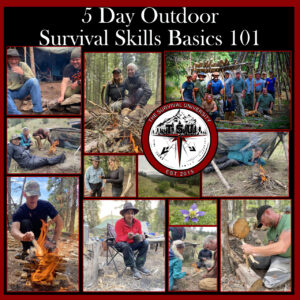
5 DAY OUTDOOR SURVIVAL BASICS 101
$595.00-
Select options This product has multiple variants. The options may be chosen on the product page -
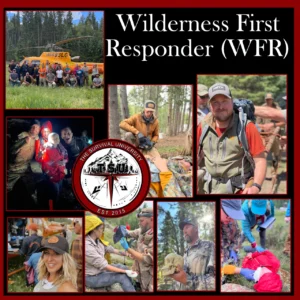
WILDERNESS FIRST RESPONDER (WFR)
$850.00-
Select options This product has multiple variants. The options may be chosen on the product page
